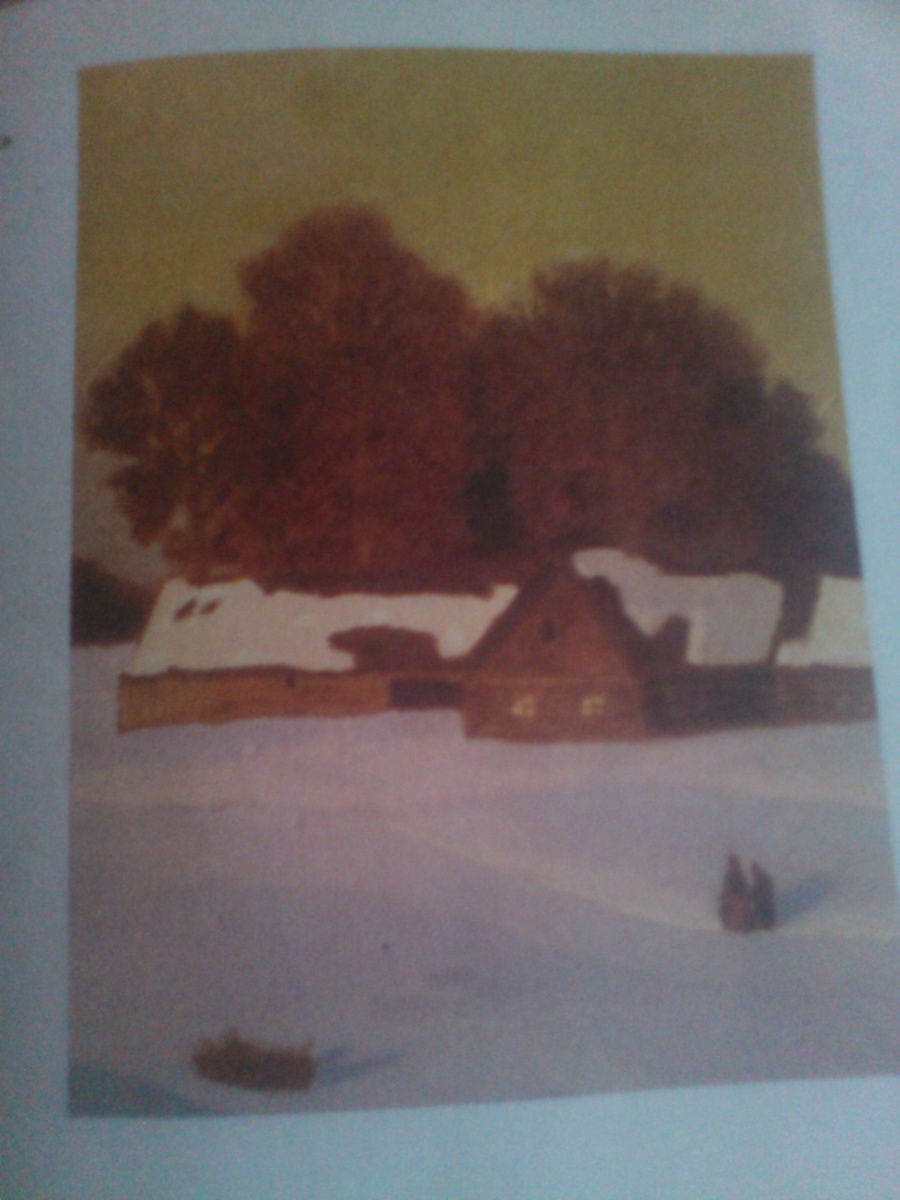Предмет: Русский язык,
автор: ellkagrishina
Напишите сочинение по картинке зимний вечер.Так чтобы слушатели почувствовали,какое впечатление на вас произвела картина художника . с прилагательными белый снежный белоснежный великолепный роскошный пышный)))
Приложения:

Ответы
Автор ответа:
1
Зимний вечер" - это пейзаж, но на нем не просто изображена природа и красивый вид. Это пейзаж с присутствием людей, их жилищ, а потому от него веет особым теплом. На среднем плане мы видим тонкую тропинку, протоптанную в сугробах, по которой идет вереница людей. Это крестьяне, что живут в деревянных избах неподалеку. Среди закутанных фигурок можно различить и детей, которым такая зима наверняка доставляет радость. На переднем плане несколько темных точек, в них тоже угадывается деревенская детвора - дети катаются с горки на санках. Скоро стемнеет и мамы позовут их домой.
В левой части картину диагонально пересекает проселок, по нему движутся две лошадиные упряжки со стогами сена. День клонится к вечеру и людям надо успеть закончить свою работу до наступления темноты. Деревья и дома выглядят темными, почти черными, но это все же не черный, а темно-коричневый теплый цвет. В этих домах наверняка тепло и уютно. На косогоре виднеется купол церкви, это символ света, добра, надежды.
В левой части картину диагонально пересекает проселок, по нему движутся две лошадиные упряжки со стогами сена. День клонится к вечеру и людям надо успеть закончить свою работу до наступления темноты. Деревья и дома выглядят темными, почти черными, но это все же не черный, а темно-коричневый теплый цвет. В этих домах наверняка тепло и уютно. На косогоре виднеется купол церкви, это символ света, добра, надежды.
Похожие вопросы
Предмет: Русский язык,
автор: zarema15862
Предмет: Русский язык,
автор: donhenkonatali
Предмет: Русский язык,
автор: anna1660
Предмет: Математика,
автор: 23112018
Предмет: Алгебра,
автор: kiselevaanastasia12